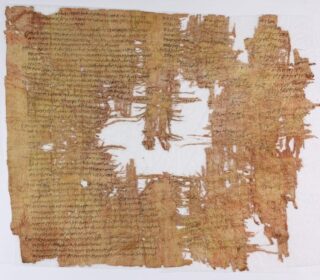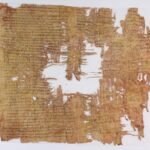Iceland, a country renowned for its rich literary heritage, has been yielding its secrets to PhD research fellow Tom Lorenz. Delving into the nation’s medieval past, Lorenz has uncovered forgotten Latin texts that reveal a more nuanced understanding of Iceland’s history and its connections to Europe.
A Literary Tradition Like No Other
Iceland boasts an impressive literary legacy, with its inhabitants having produced a remarkable number of writers and works throughout the centuries. The country’s medieval literary tradition is particularly notable, with the preservation of Norway’s royal lineage being a significant example. Icelandic skalds, skilled poets who composed verses in honor of kings, played a crucial role in recording these histories.
Uncovering Hidden Texts
Lorenz’s research has focused on unearthing Latin texts from Icelandic manuscripts, which have been largely overlooked in favor of Old Norse texts. By examining these Latin texts, Lorenz aims to reconstruct a more comprehensive understanding of Iceland’s medieval history and its place within the broader European cultural context.
The Value of Vellum
During the Middle Ages, books and texts were written on parchment made from animal skins, with vellum being a particularly valuable material. Due to its high value, vellum was often reused, with old manuscript pages being scraped and polished to create new texts. This process, known as palimpsesting, was common in medieval Europe, but Iceland’s unique cultural and economic context has yielded a distinct set of palimpsests.
A Unique Icelandic Phenomenon
Lorenz’s research has highlighted the unique phenomenon of printed palimpsest books in Iceland. Unlike other European countries, where palimpsests were typically handwritten, Iceland’s palimpsests include printed texts. This discovery has significant implications for our understanding of Iceland’s literary and cultural history.
The Impact of the Reformation
The Protestant Reformation of the 16th century had a profound impact on Iceland, leading to a shift away from Latin and towards the vernacular language. This transition has made it challenging for researchers to uncover and interpret Latin texts from the medieval period. Lorenz’s work is helping to address this gap in our knowledge and provide a more nuanced understanding of Iceland’s complex history.
Uncovering the Secrets of the Past
As Lorenz continues to explore the hidden texts of Iceland’s medieval past, he is uncovering a rich and complex history that challenges our previous understanding of this fascinating country. By examining the intersections between Icelandic and European culture, Lorenz’s research is shedding new light on the nation’s literary and cultural heritage.

















